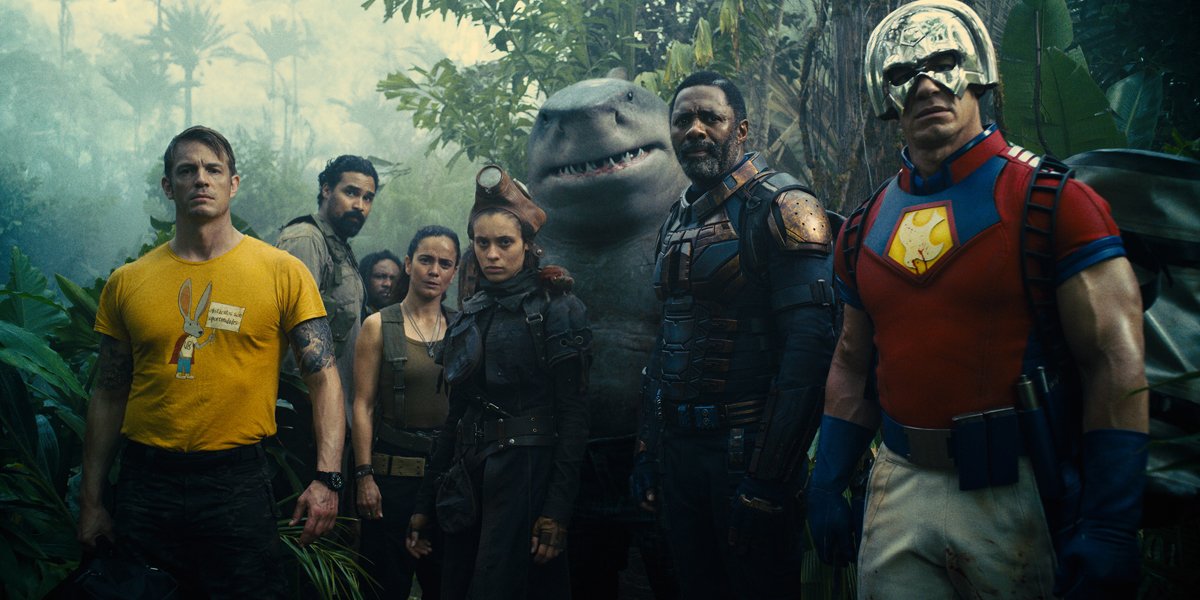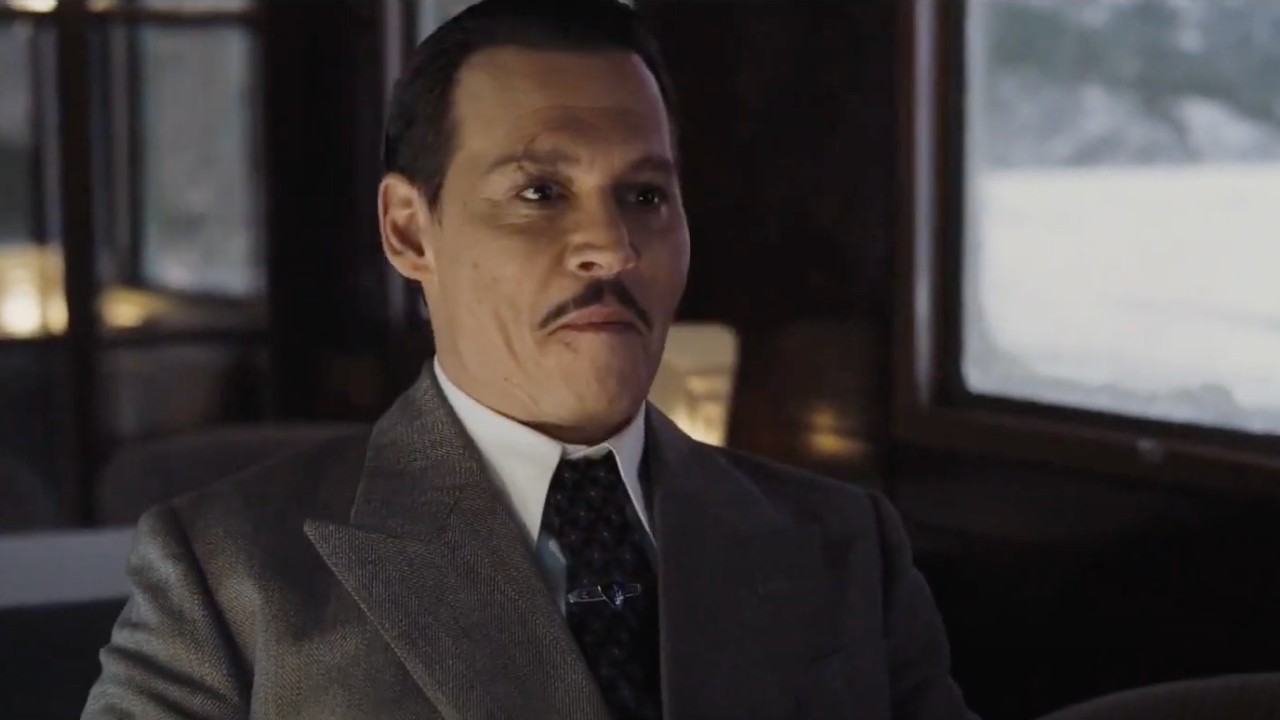The making of any blockbuster requires at least a certain amount of compromise. Resource allocation, in terms of both time and money, is a constantly flowing discourse, and there are always multiple individuals and interests involved behind-the-scenes that need to be heard and satiated. It’s all a natural part of making a movie with a nine-figure price tag – but it means that any filmmaker pursuing the path has to work extra hard to ensure that at the end of the day there is proper balance and compromise doesn’t overwhelm vision.
In the last 10 years, arguably no director has navigated these potentially treacherous waters as well as James Gunn. It was because of his unique voice and style that Guardians of the Galaxy went from being the Marvel Cinematic Universe’s riskiest venture to one of its most beloved titles, and after rediscovering that magic in Guardians of the Galaxy Vol. 2 (albeit in lesser quantities), he has now brought his A-game over to DC. In short, The Suicide Squad feels like a movie that was directly translated from the filmmaker’s brain to the big screen, and if you’re an individual hooked into his wavelength, you’re going to have a raucous good time.
Working with some of the same pieces as its 2016 predecessor from director David Ayer, but also making no real effort to establish firm continuity, The Suicide Squad begins quickly by reestablishing its central premise: under the macro supervision of the hard-as-nails Amanda Waller (Viola Davis), imprisoned supervillains are brought together as a unit called Task Force X, hired to execute exceptionally dangerous missions for the government. If they succeed, time is taken off their respective sentences; if they try to escape, explosives implanted in their necks are detonated; and if they are killed in action, their association with the program is unequivocally denied.
When a military coup begins to unfold in the fictional country of Corto Maltese, Waller gets the gears turning to form two separate Task Force X units – the ultimate goal being to infiltrate and destroy a highly classified laboratory before the new regime can discover the research that is being conducted inside. Hitting the country’s south shore are Rick Flagg (Joel Kinnaman), Harley Quinn (Margot Robbie), T.D.K. (Nathan Fillion), Mongal (Mayling Ng), Blackguard (Pete Davidson), Savant (Michael Rooker), Captain Boomerang (Jai Courtney), Javelin (Flula Borg) and Weasel (Sean Gunn); and arriving on the north shore are Bloodsport (Idris Elba), Ratcatcher 2 (Daniela Melchior), King Shark (Sylvester Stallone), Peacemaker (John Cena), and Polka-Dot Man (David Dastmalchian).
Dealing with interpersonal conflicts, specific phobias, clashing skills, hidden motives, and deadly opposition, the teams must work together to complete the assignment – all while really having no idea what is really waiting for them at the end.
The story structure is a bit herky-jerky, but The Suicide Squad is always clever and fun when it needs to be.
James Gunn opts for a non-linear approach to his Suicide Squad story, the narrative bouncing back and forth in time while environment-ensconced chyrons are used for transitions, and it doesn’t always flow perfectly. In the second act, for example, there is a subplot that plays out centered around Harley Quinn – and while it’s solid character development material and adds more layers to the fan-favorite anti-hero, it feels more like a short story that has been slotted in than a natural extension of everything happening around it. That being said, far more often than not the scrambled timeline of the movie makes for chaotic fun.
Always pumping the story with new energy, the main mission in The Suicide Squad winds up being comprised of multiple mini-missions with their own objectives, and within each one there are funny and often dark surprises built in. Whether the job is to resolve a hostage situation, execute a kidnapping, or do a bit of demolition, things never play out precisely as you’d expect, and the reasoning behind all of the issues emerges from James Gunn’s clever and detail-driven script.
It’s challenging to choose a standout in James Gunn’s ensemble cast because everyone is phenomenal.
James Gunn is able to find ways to enhance all of his characters via the story being told – testing their values and allegiances as certain revelations are made – and what is perhaps the greatest achievement of the blockbuster is its ability to let every single character hold the spotlight in their own way. Be it the ever-growing independence of Harley Quinn, the sweet, rodent-loving oddness of Ratcatcher 2, or the haunted depression of Polka-Dot Man, they all have their distinct quirks that make them a joy to watch – and that’s not even mentioning the “peace at literally any cost” mindset of Peacemaker; the fiery brashness of Bloodsport; and the spectacular ferocity and dumbness of King Shark.
Like with Guardians of The Galaxy, not all of the character depictions are bend-over-backwards faithful to their comic book counterparts, but everyone has their special role to play in James Gunn’s violent, twisty circus.
The Suicide Squad’s action makes the most of its band of misfit protagonists.
Where The Suicide Squad very much differs from Gunn’s Marvel movies is in the brand of action, as the filmmaker is allowed off the leash when it comes to R-rated content, and he is not in any way afraid to abuse that freedom to the most entertaining extent. Its great qualities don’t exclusively come from the over-the-top, gore-filled violence, however, as the writer/director also constructs a number of excellent set pieces that test the individual qualities of the characters and allow them to shine – be it elements from Polka-Dot Man’s backstory (which I won’t spoil here) or Bloodshot getting to mow down enemy combatants with his badass customizable weaponry.
It’s crazy to think that 2021 marks the 10 year anniversary of James Gunn’s awesome, ultra-low budget costumed vigilante movie Super, and then think about where he is now, making some of the industry’s best comic book blockbusters. Be it Marvel or DC, the genre is better for having Gunn’s sensibilities as a key flavor in the mix, and The Suicide Squad is almost like trophy that celebrates everything that he’s been able to accomplish.

Eric Eisenberg is the Assistant Managing Editor at CinemaBlend. After graduating Boston University and earning a bachelor’s degree in journalism, he took a part-time job as a staff writer for CinemaBlend, and after six months was offered the opportunity to move to Los Angeles and take on a newly created West Coast Editor position. Over a decade later, he's continuing to advance his interests and expertise. In addition to conducting filmmaker interviews and contributing to the news and feature content of the site, Eric also oversees the Movie Reviews section, writes the the weekend box office report (published Sundays), and is the site's resident Stephen King expert. He has two King-related columns.
Hacks Season Four Premiere Was Almost Perfect, But I Have A Complaint About Deborah And Ava
Next Summer Is Going To Be All About Tom Holland, And I Need Everyone To Start Coming Up With A Fun Spider-Man Version Of Barbenheimer Now
Everybody Knows Michael Rooker Is Great, And It Kills Me That The Righteous Gemstones Took Four Seasons To Introduce This Stellar Character











